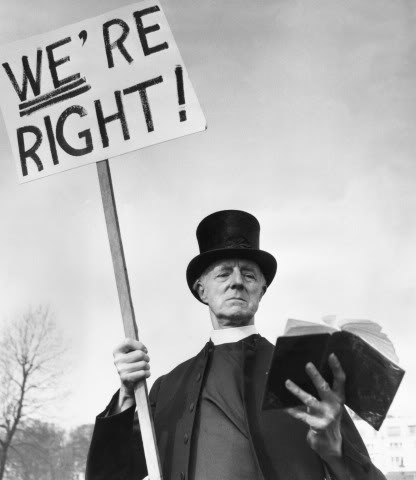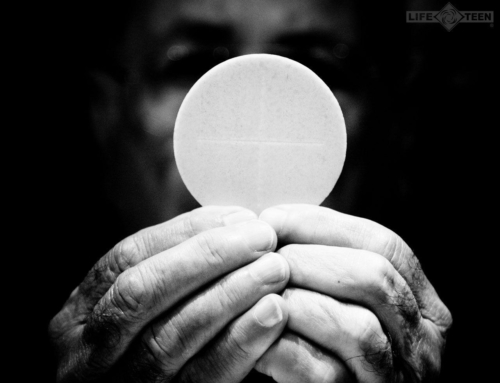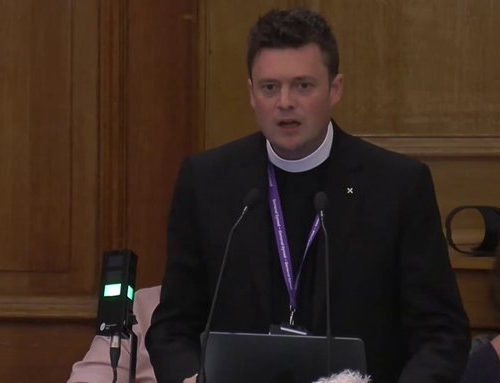You can ask me. I’m a Bob Jones graduate remember?
When I was at Bob Jones the term “fundamentalist” was only just beginning to get traction as a pejorative term. The Protestant fundamentalists at Bob Jones wore the label with pride. It set them apart from the Evangelicals they considered to be sweet, soft and spineless. Those types were called “neo Evangelicals” and went to Wheaton Bible College and thought Billy Graham was great.
In fact the term “fundamentalism” belongs originally to the conservative Protestants.
Fundamentalism as a movement arose in the United States, starting among conservative Presbyterian theologians at Princeton Theological Seminary in the late 19th century. It soon spread to conservatives among the Baptists and other denominations around 1910 to 1920. The movement’s purpose was to reaffirm key theological tenets and defend them against the challenges of liberal theology and higher criticism.[11]
The term “fundamentalism” has roots in the Niagara Bible Conference (1878–1897), which defined those tenets it considered fundamental to Christian belief. The term was popularized by The Fundamentals, a collection of twelve books on five subjects published in 1910 and funded by the brothers Milton and Lyman Stewart. These essays came to represent a Fundamentalist-Modernist Controversy that appeared late in the 19th century within some Protestant denominations in the United States, and continued in earnest through the 1920s. The first formulation of American fundamentalist beliefs traces to the Niagara Bible Conference and, in 1910, to the General Assembly of the Presbyterian Church, which distilled these into what became known as the five fundamentals:[12]
- Biblical inspiration and the infallibility of scripture as a result of this
- Virgin birth of Jesus
- Belief that Christ’s death was the atonement for sin
- Bodily resurrection of Jesus
- Historical reality of the miracles of Jesus
If this is the definition of fundamentalism, then I’m a fundamentalist. Adhering to the “old time religion” of a supernatural faith revealed by God to his people is a good thing, and both Catholics and Protestants who keep to the “faith once delivered to the saints” are to be commended. While we believe Protestants follow a reductionist version of Christianity, when they hold to the Biblical basics they are closer to historic Catholicism than they realize, and certainly closer than the modernists who deny these truths.
However, this is not what “fundamentalist” means for most people. The term has morphed over the years, and now carries significant baggage. The press refers to Islamic fundamentalists, Mormon fundamentalists, Right wing fundamentalists, Hindu Fundamentalists, Catholic fundamentalists and so forth.
Fundamentalism therefore is not longer simply a signal of adherence to the “fundamentals of the faith.” It is a term that includes not only a faithful belief in the “old time religion” but a set of attitudes and behaviors that are negative and self righteous.
These negative behaviors are evident in the fundamentalism of every religion. Indeed, the behaviors are so similar as to provide a kind of sick ecumenism. Hindu fundamentalists, Muslim fundamentalists, Protestant fundamentalists, Catholic fundamentalists, Mormon fundamentalists–all of them exhibit the same behaviors and attitudes.
The behaviors and attitudes are fascinating because they are, in effect, a kind of anti religion.
Where every religion calls for charity we see hatred. Where true religion calls for an open and enquiring attitude we see intellectual shut down. Where true religion calls for humor and humility we see sour self righteousness. Where true religion calls for faith and risk we see a fortress mentality and retreat to the comfort zone. Where true religion calls for reaching out and welcoming of the stranger we see suspicion, exclusion and fear. Where true religion calls for forgiveness and a non judgmental attitude we see shunning and condemnation. Where true religion calls for freedom and joy we see legalism and misery.
What makes it more complicated is that within a fundamentalist community not everyone exhibits these negative behaviors, and those who do exhibit them are not totally negative or negative all the time. Sincere faith, kindliness, charity, humility and humor are mixed up with the negativities.
Furthermore, those who are outside fundamentalist enclaves often exhibit fundamentalist-type negative attitudes and behaviors. Progressives can be just as “fundamentalist” in their adherence to an ideology, just as unbending in their rules and regulations and just as aggressive towards those to whom they harbor resentment and just as mean and nasty as the most pinched and narrow conservative.
It is easy to castigate a particular group as “fundamentalist” but that is the same kind of stereotyping behavior that is a mark of fundamentalism. The pots and kettles are all black.
It is better therefore to be alert to the various kinds of negative behaviors and condemn them rather than labelling a whole group of people or condemning a whole subset of religious folks.
If this is the case, then we should be alert and opposed to bigotry, blame, condemnation, suspicion, fear, self righteousness, exclusiveness, legalism wherever it appears, and we should be unrelenting in our attempt to weed it out…
…starting in our own hearts.







Leave A Comment
You must be logged in to post a comment.